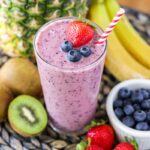Reversing Diabetes Through Healthy Nutrition: A Natural Approach
Diabetes is a chronic condition that affects millions of people worldwide. While medication and insulin therapy are commonly used to manage the disease, research suggests that a healthy diet can play a crucial role in reversing type 2 diabetes and improving overall well-being. By making informed dietary choices, individuals can regulate blood sugar levels, reduce insulin resistance, and promote long-term health.
Understanding Diabetes and Its Causes
Diabetes occurs when the body either does not produce enough insulin or cannot use it effectively. There are two main types:
- Type 1 Diabetes: An autoimmune condition in which the body attacks insulin-producing cells.
- Type 2 Diabetes: Often linked to poor lifestyle habits, obesity, and insulin resistance.
Type 2 diabetes, in particular, is largely influenced by diet and lifestyle, making it possible to reverse or significantly manage the condition through proper nutrition.
How Healthy Eating Helps Reverse Diabetes
A well-balanced diet helps stabilize blood sugar levels, reduce inflammation, and improve insulin sensitivity. Here are some key dietary principles to follow:
1. Prioritize Whole, Unprocessed Foods
Whole foods provide essential nutrients and help regulate blood sugar. Focus on:
- Fresh vegetables (leafy greens, broccoli, peppers)
- Lean proteins (chicken, fish, tofu)
- Healthy fats (avocados, nuts, olive oil)
- Whole grains (quinoa, brown rice, oats)
2. Reduce Sugar and Refined Carbohydrates
Refined carbs and sugary foods cause rapid spikes in blood sugar. Avoid:
- White bread, pasta, and processed cereals
- Sweets, pastries, and sugary beverages
- High-fructose corn syrup and artificial sweeteners
3. Increase Fiber Intake
Fiber slows digestion, preventing blood sugar spikes. Good sources include:
- Legumes (lentils, chickpeas, black beans)
- Chia seeds and flaxseeds
- Fruits like berries and apples (in moderation)
4. Manage Portion Sizes
Overeating, even healthy foods, can impact blood sugar. Use portion control techniques such as:
- Eating from smaller plates
- Measuring food portions
- Eating slowly and mindfully
5. Stay Hydrated
Water supports metabolic processes and helps control appetite. Avoid sugary drinks and opt for:
- Herbal teas
- Infused water with lemon or mint
- Black coffee (without added sugar)
The Role of Exercise and Lifestyle Changes
Healthy eating combined with regular exercise can dramatically improve diabetes outcomes. Activities like walking, strength training, and yoga help improve insulin sensitivity and overall metabolic health.
Other lifestyle habits that support diabetes reversal include:
- Managing stress through meditation or deep breathing
- Getting quality sleep to regulate hormones
- Maintaining a consistent eating schedule to avoid blood sugar fluctuations
Conclusion
Reversing diabetes through healthy nutrition is possible with commitment and the right dietary choices. By focusing on whole foods, reducing sugar intake, increasing fiber, and adopting a healthy lifestyle, individuals can take control of their health naturally. Making these sustainable changes not only improves diabetes but also enhances overall well-being and longevity.



